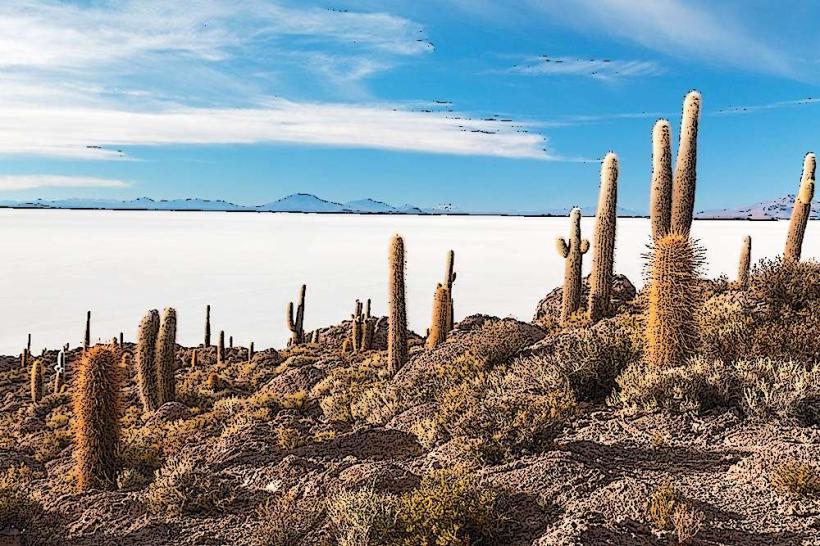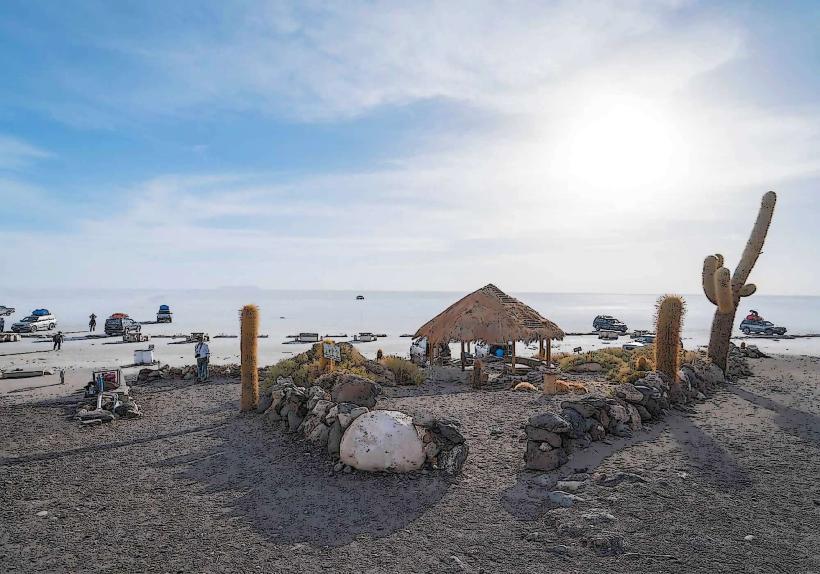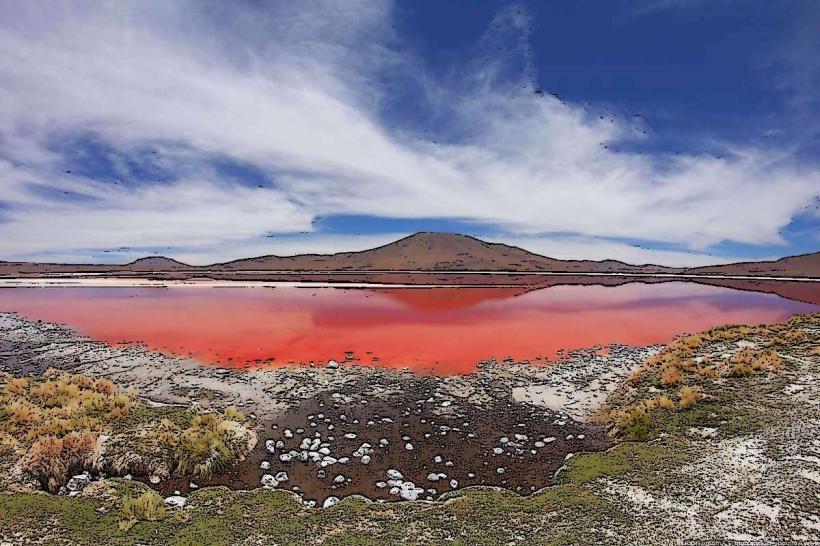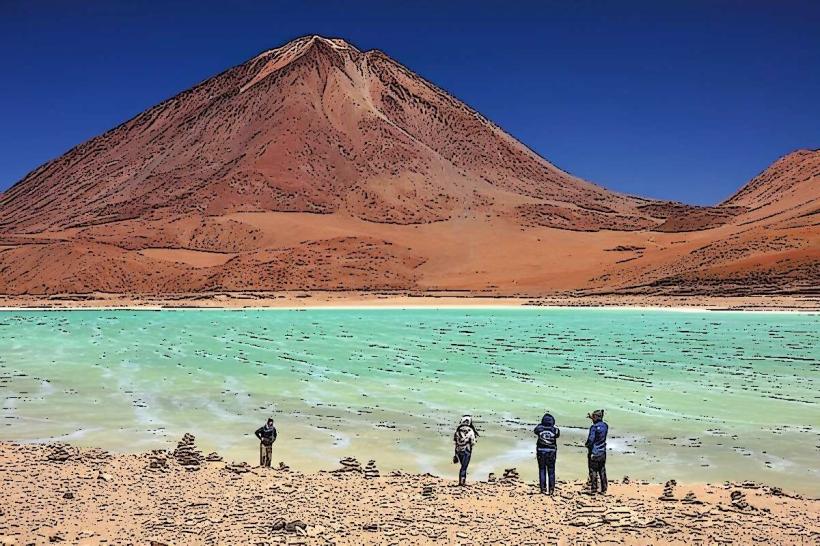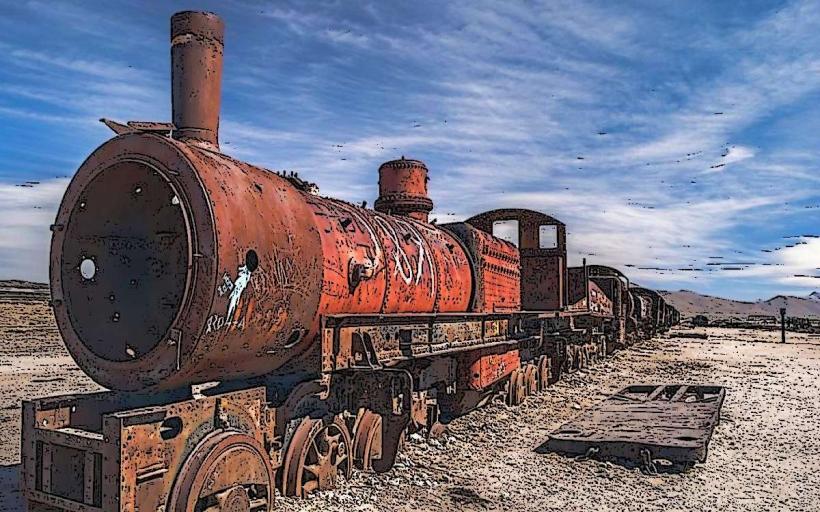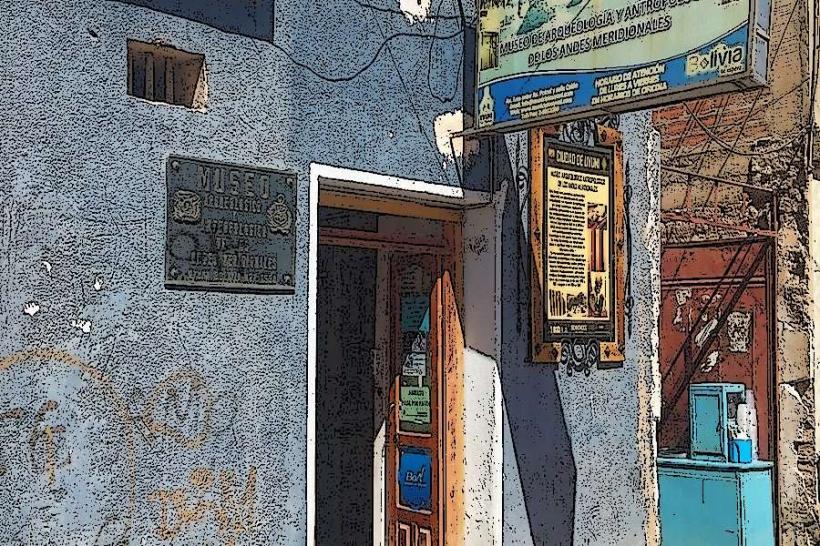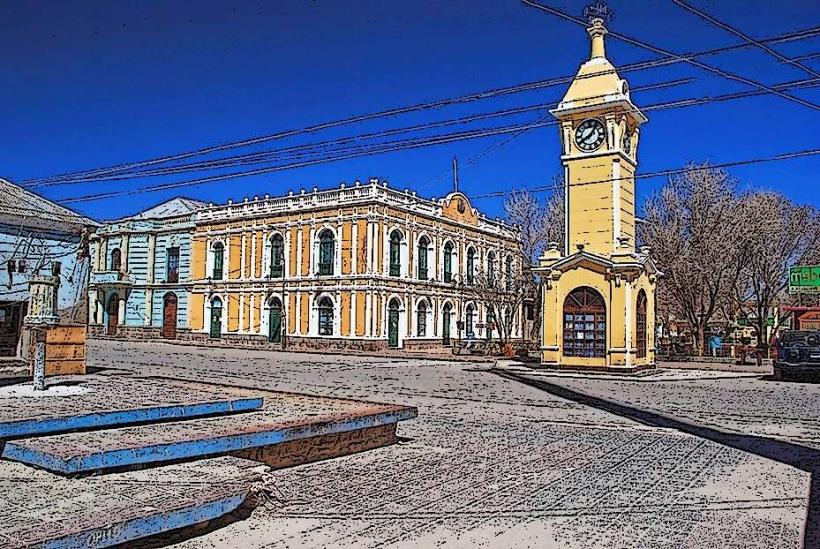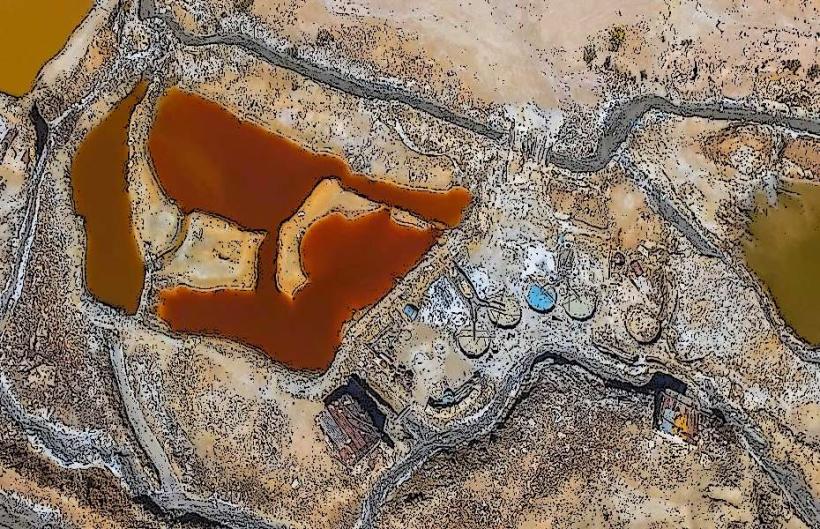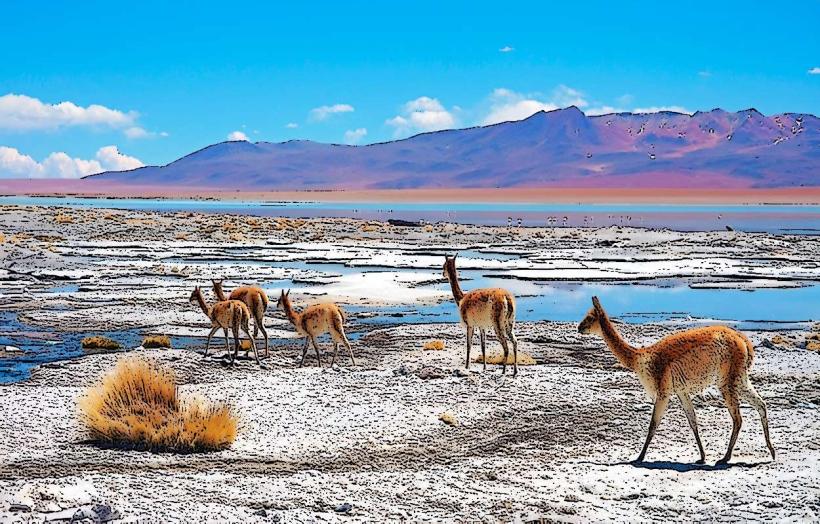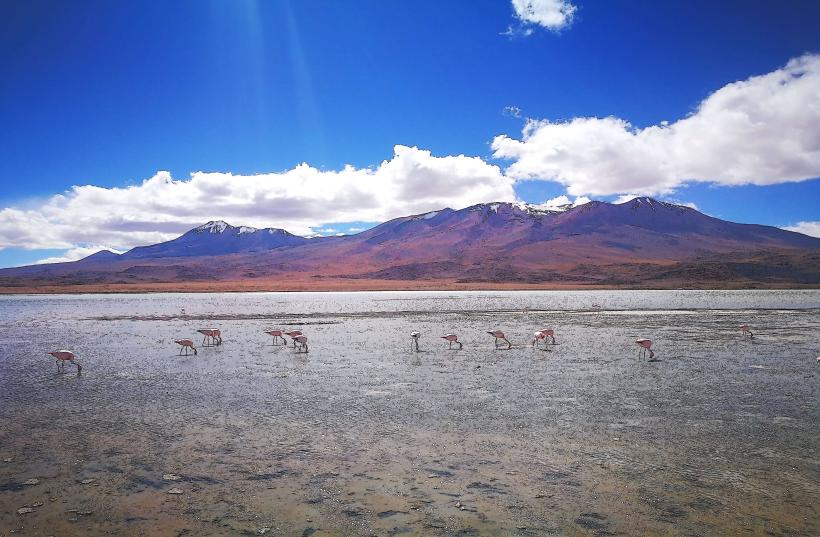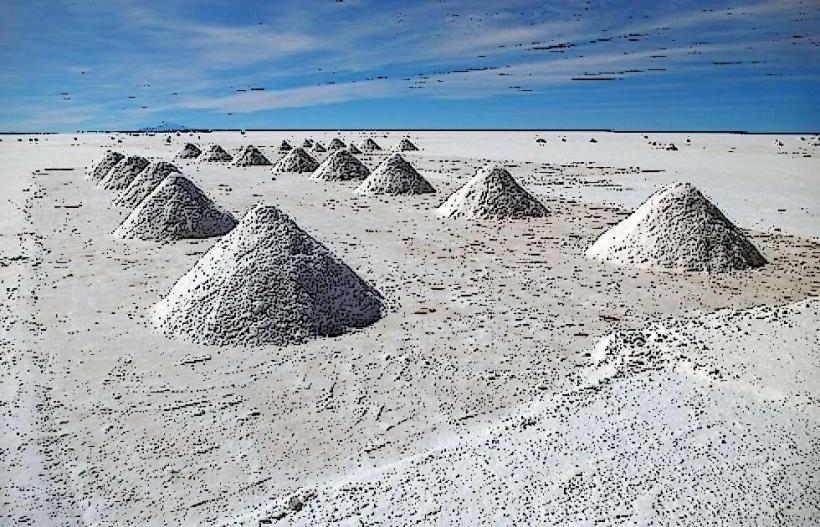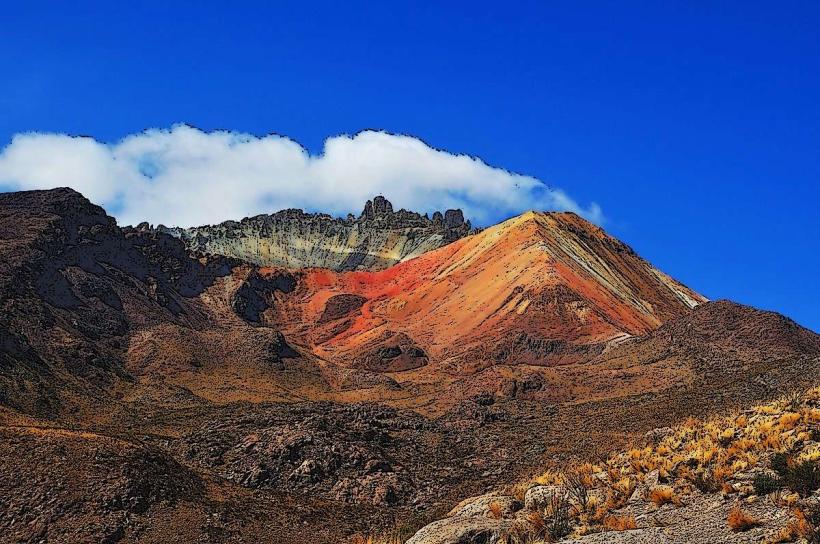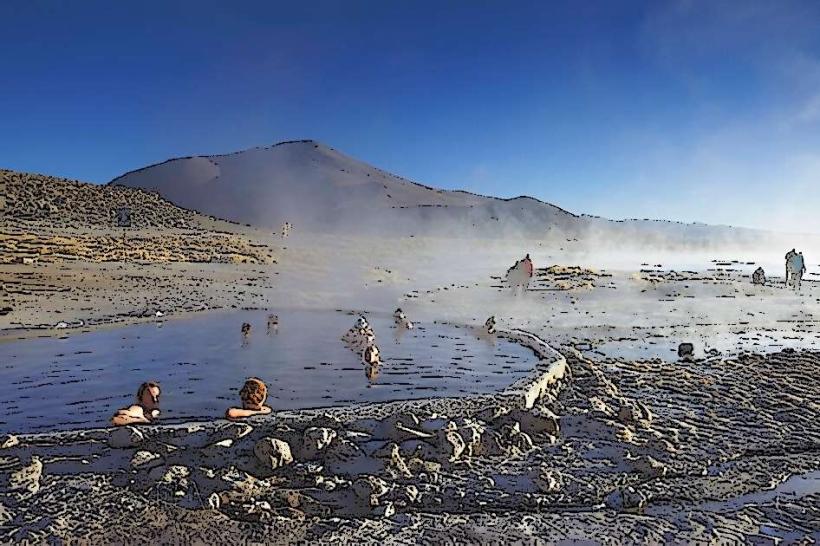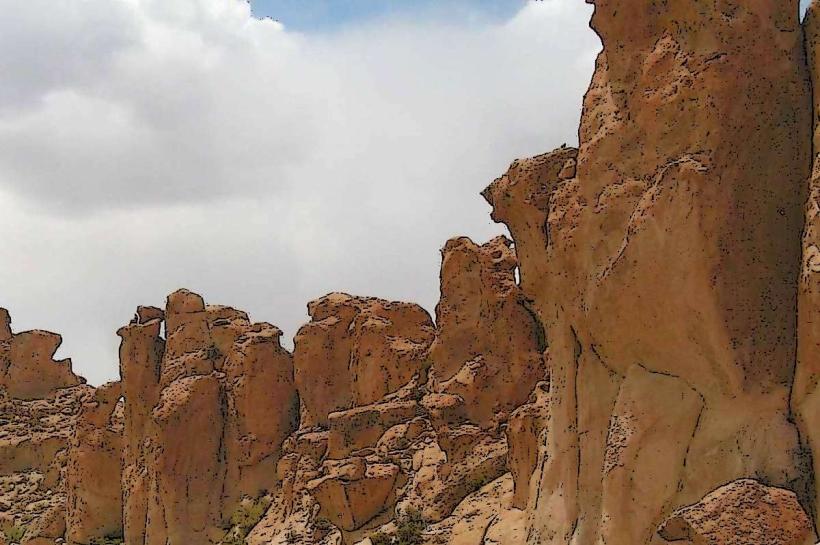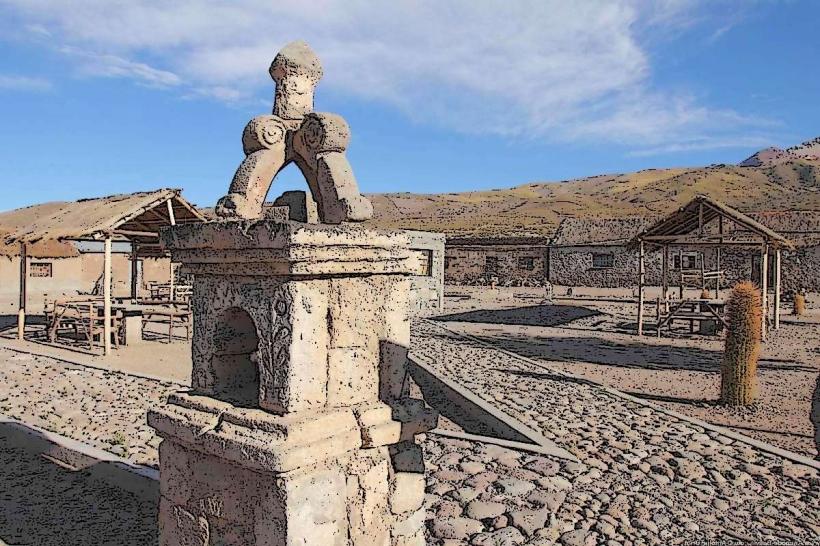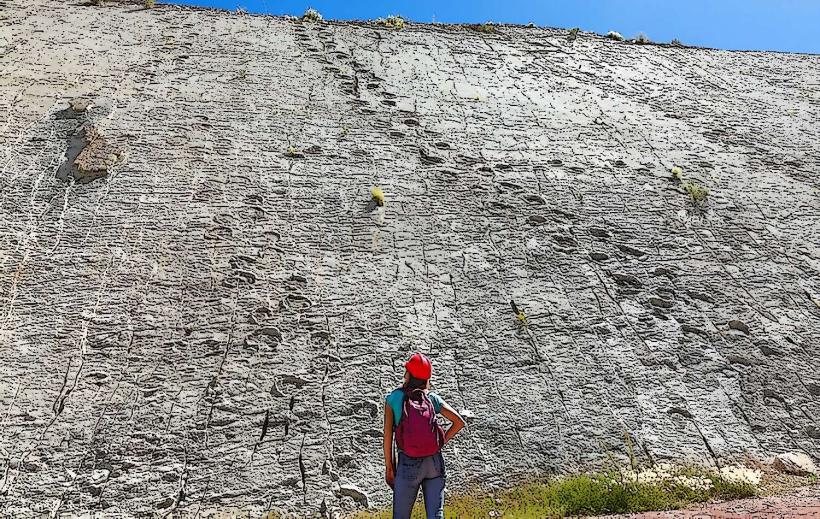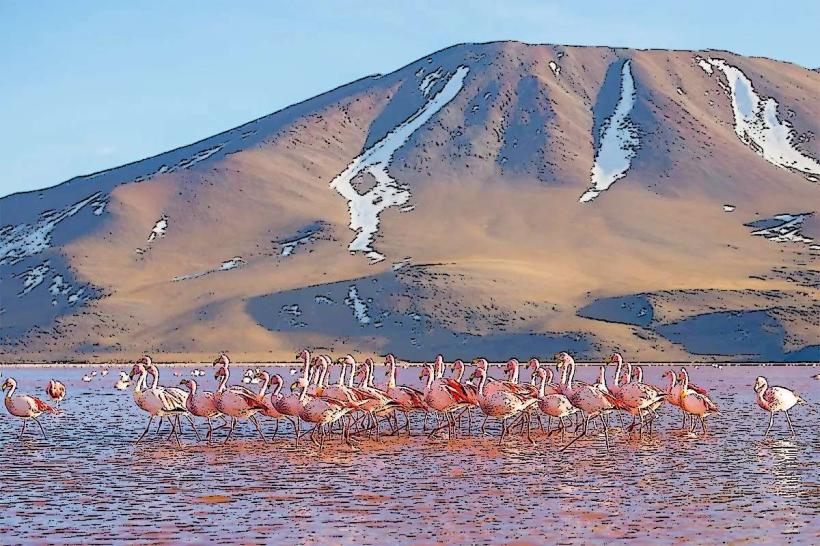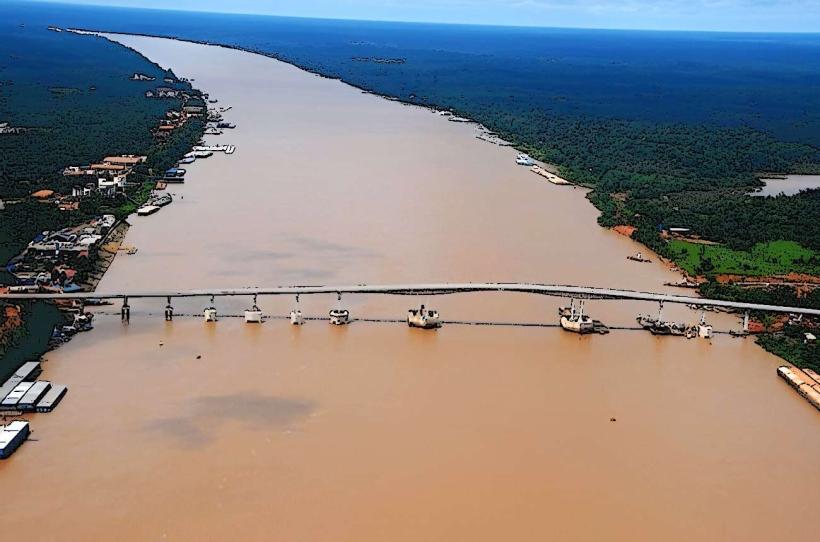Information
Landmark: Ojo de PerdizCity: Uyuni
Country: Bolivia
Continent: South America
Ojo de Perdiz, Uyuni, Bolivia, South America
Ojo de Perdiz is a small lagoon located within the Eduardo Avaroa National Reserve in the southern Altiplano of Bolivia, near the border with Chile. It is situated in a remote and stunning area, offering a serene and unique landscape. The name "Ojo de Perdiz," which translates to "Partridge Eye" in English, refers to the shape of the lagoon, which resembles the eye of a bird.
Key Features of Ojo de Perdiz:
Geographical Location:
- Ojo de Perdiz is located at a high altitude, approximately 4,200 meters (13,780 feet) above sea level. It sits in the southeastern corner of the Eduardo Avaroa National Reserve, a region known for its dramatic and diverse landscapes, including salt flats, volcanic peaks, and geothermal areas.
Scenic Beauty:
- The lagoon is surrounded by rugged terrain, with towering volcanic mountains and snow-capped peaks in the distance. The area is characterized by its barren, desert-like environment, which makes the vibrant water of the lagoon stand out even more. The deep blue-green color of the water contrasts strikingly with the dry, rocky landscape, creating a mesmerizing view for visitors.
Wildlife:
- The Ojo de Perdiz lagoon, like many other bodies of water in the region, is home to various species of wildlife, particularly flamingos. The lagoon is a popular spot for birdwatching, as it provides an important habitat for these Andean flamingos, which feed on the algae and plankton in the shallow waters.
- In addition to flamingos, llamas and vicunas can often be seen grazing in the surrounding areas, adding to the charm of the place. The presence of wildlife in such a remote and harsh environment makes Ojo de Perdiz a special location for nature enthusiasts.
Proximity to Other Attractions:
- Ojo de Perdiz is a stop on many tours that explore the Eduardo Avaroa National Reserve and the Salar de Uyuni region. It is located near other notable attractions, such as:
- Laguna Colorada: A striking red-colored lagoon that is famous for being a key spot for flamingo populations.
- Sol de Mañana: A geothermal area with hot springs, fumaroles, and geysers.
- Laguna Verde: A green-colored lagoon at the foot of the Licancabur Volcano.
- Visitors often stop at Ojo de Perdiz to appreciate the tranquil beauty of the lagoon, which provides a peaceful contrast to the more popular and crowded destinations in the region.
Cultural and Historical Importance:
- The lagoon, like much of the Eduardo Avaroa National Reserve, holds cultural and historical significance to the indigenous people of the region, particularly the Aymara and Quechua communities. These peoples have lived in the high-altitude Andes for centuries, and their deep connection to the land is reflected in their spirituality, which is intertwined with the natural elements and landscapes around them.
Tourism:
- Ojo de Perdiz is accessible as part of guided tours that typically depart from Uyuni, often as part of multi-day trips through the southern Altiplano. Travelers typically visit in 4x4 vehicles, as the roads to the lagoon can be rough and unpaved.
- The lagoon is a remote and peaceful spot, and while it’s not as heavily visited as some of the more famous sites in the region, it offers visitors a tranquil experience to connect with nature in a less crowded environment.
Conclusion:
Ojo de Perdiz is a hidden gem within the Eduardo Avaroa National Reserve, offering travelers an opportunity to experience the surreal beauty of Bolivia’s Altiplano. With its striking landscape, abundant wildlife, and proximity to other iconic sites like Laguna Colorada and Laguna Verde, Ojo de Perdiz is a must-see for nature lovers and adventurers seeking a serene and captivating destination in one of the most remote regions of Bolivia.

